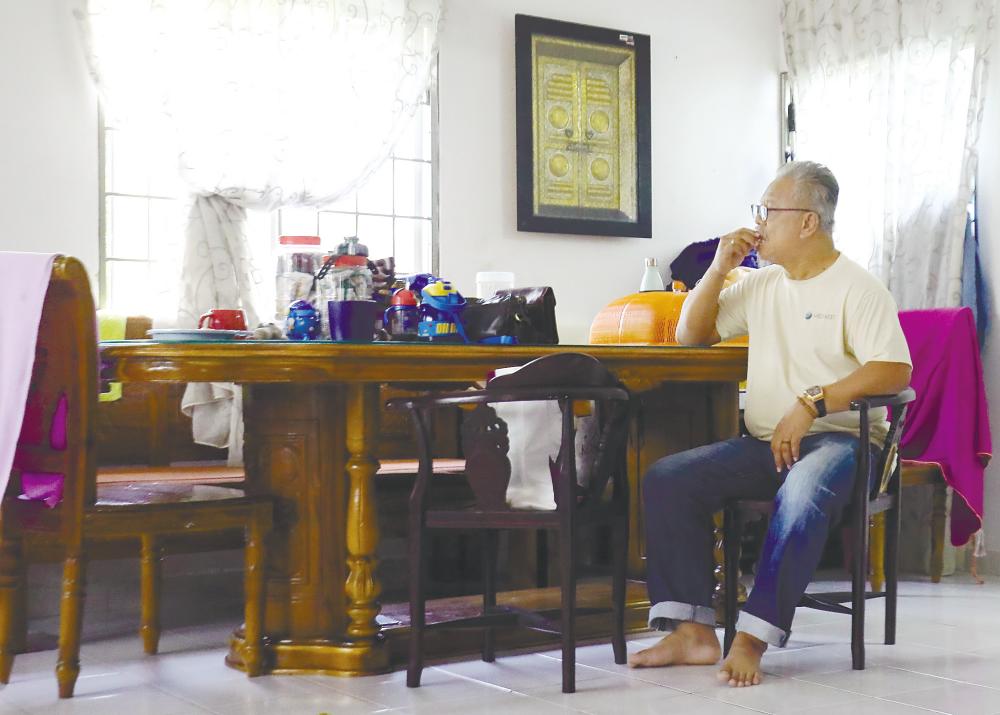PETALING JAYA: A gerontologist (a person who studies old age issues) has urged the government to enact laws that specifically address the needs of senior citizens, especially those living alone.
Universiti Teknologi Mara senior lecturer Dr Nur Amalina Aziz said there are currently no laws in Malaysia that address such issues, which are becoming an increasing concern as the ageing population continues to grow.
However, since the mid-1990s, policymakers in Bangladesh, China, India and Singapore have developed filial-support laws as a way to ensure children meet some of their parents’ needs.
She said although such laws are not a panacea for addressing all of the problems associated with socio-demographic change, they persuade families to provide a greater share of older members’ social and healthcare needs.
Nur Amalina was expressing concern over recent incidents where the elderly were found to have deceased in their homes without anyone taking notice.
On Aug 23, the bodies of a father in his 70s and his disabled son in his 40s were found at their Taman Indah home in Sungai Abong, Muar, Johor. They were believed to have been dead for several days.
On Sept 5, Sentul district police chief Asst Com Ahmad Sukarno Mohd Zahari said a 74-year-old man was found dead in his apartment in Kepong, Selangor, with his body reduced to a skeleton. He is believed to have died four years earlier.
“There is this issue of filial piety, where some children neglect their elderly parents and fail to provide them with adequate financial, medical or emotional support.
“In the Sept 5 case, the son is said to have last contacted his father in 2021. This highlights the growing problem of family neglect.”
She said senior citizens have needs that cannot be treated similarly to others.
For instance, they can choose to live alone but existing housing provisions do not meet their needs in terms of safety, affordability or age-friendliness.
Nur Amalina said considering that their mental and physical well-being is crucial, it is risky for older individuals to live on their own, especially if they suffer from chronic illnesses.
She said solitary living with minimal interaction with people worsens the isolation experienced by senior citizens and this contributes to the occurrence of such incidents.
In many cases, elderly individuals living alone may not have regular social contact, making it difficult for others to notice if they need assistance or are in distress.
“So it’s sometimes necessary to be a bit of a ‘busybody’ to ensure the well-being of elderly individuals who live alone. It can make a significant difference in identifying and addressing issues before they escalate.”
Nur Amalina said with Malaysia officially recognised as an ageing nation, with over 15% of the population expected to be senior citizens by 2030, critical questions need to be asked about the country’s readiness to meet their needs.
“Are we ready for this demographic change and is government support for our elderly sufficient?
“Many elderly individuals also live in poor quality houses that fail to fully meet safety standards due to high costs and inadequate management. Current trends also show that many of them were placed in old folks homes.”
Nur Amalina said there are not enough facilities available to accommodate the growing needs of our senior citizens.
“So, who is going to be responsible for them?”
She said Malaysia can learn some best practices from South Korea, which has implemented the “older person care by older person project”.
Its main objective is to offer disabled elderly persons work as carers, with a monthly salary of RM2,672, as well as to prevent “lonely deaths” among them.
“Government agencies and NGOs have a responsibility to support senior citizens who live alone and help them escape social isolation, loneliness and depression.”
theSun reached out to the Social Welfare Department for comment on Aug 28 but has not received any feedback.









